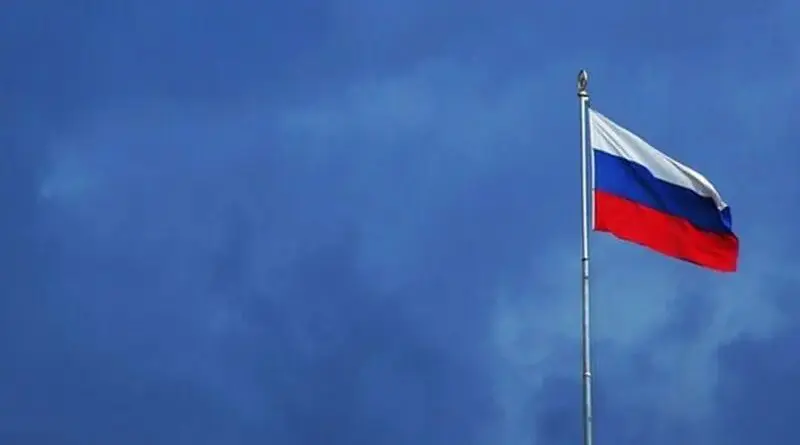What Evelyn Farkas, Trey Gowdy And Some Others Dubiously Have In Common – OpEd
The likes of Evelyn Farkas and The Washington Post (The WaPo or WaPo for short), continue to hustle the Russigate hoax, despite the presence of fact based second guessing, that has been very much censored by US mass media. Farkas served a period in the Obama administration as a “deputy assistant secretary of defense for Russia, Ukraine and Eurasia”. Over that time and thereafter, she has made a series of subjectively inaccurate and negative claims about Russian government actions, in a way which also happens to be an affront to mainstream thinking Russians and others with a sense of fairness in covering that country.
For that reason, it was disappointing (but not so surprising) to watch what Dmitriy Simes (of the realist leaning National Interest), said in a one-sided CNN and PBS aired Russia bashing discussion with Farkas and Christiane Amanpour this past January. In that segment, Simes offered no opposition to what Farkas and Amanpour have pushed relative to Russia. That airing further substantiates my contention of a managed US foreign policy realism with unofficially understood limits.
Farkas’ May 18 WaPo op-ed “Russia is interfering in our elections again. And Trump supporters are emulating Russian tactics.” is the same old, same old. She’s by no means alone in repeatedly stating faulty innuendo about Russia. The manner of her ongoing bravado is worthy of rebuke.
On May 13 and 18, Fox News’ Tucker Carlson, specifically called out Farkas, to substantiate her put mildly suspect and unchallenged claims stated on CNN, MSNBC, The WaPo, et al. (On May 13, Carlson does such at the 5:25 mark of this hyperlinked video. In reply to Farkas’ May 18 WaPo, piece, Carlson calls her out again at the 33:19 mark of this hyperlinked video.)
Within American mass media circles, Carlson stands out in not readily accepting the notion that the Russian government meddled in the 2016 US presidential election. This was evident when he interacted with Trey Gowdy on May 11. Gowdy was unable to substantiate his contention (stated by some others) that the Russian government had intervened in the 2016 US presidential election for the purpose of sowing discord. Likewise, there has been no successful counter to a recent follow-up, reaffirming no conclusive proof of a Russian government hacking of the Democratic National Committee emails, which were then supposedly used by the Kremlin to demonically troll the US.
The May 8 Fox Business segment between Lou Dobbs and John Solomon, presents the Steele Dossier’s anti-Trump content as bogus Russian Intel information received by Christopher Steele, who then forwarded the material over to the FBI. Where’s the proof that Steele had actually received the information from Russian Intel? Based on what has been presented, it’s not off the wall to believe that the claim of Russian government meddling in the 2016 US vote, more closely resembles a crackpot conspiracy theory than a grave national threat.
Solomon is in line with the US Republican Party establishment which (grudgingly or otherwise) accept Trump. For these folks, debunking the belief of a Trump-Russia collusion is a paramount interest, unlike clearing Russia of wrongdoing. This mindset rightfully ridicules Adam Schiff for saying that he has proof of a Trump-Russia collusion against Hillary Clinton, while accepting the assertion of Russian government US election meddling, without any conclusive proof given.
Solomon, Gowdy, Sean Hannity, et al, suggestively pass off the Steele Dossier as a Russian government effort to discredit Trump. Even if some, most, or all of Steele’s sources are Russian, the question arises of what kind? Russia has a diversity of views. Those not liking Putin are likely to dislike Trump. It seems quite possible that Steele was too trusting of the information he received.
Awhile back, Solomon (as well as some others) noted flaws in the Steele Dossier. One of them is the mention of a Russian Consulate in Miami, which doesn’t exist. Steele has never had the reputation of being especially friendly towards Russia. During the 2016 US presidential campaign, Trump advocated closer US-Russian relations – something that irked neocon, neolib and flat out anti-Russian leaning ranks. With this in mind, it’s not unreasonable to believe that the Steele Dossier is made up crapola done with the intent to discredit Trump.
Why would the Russian government choose to dis Trump, who at the time of the 2016 US election process, had represented a potentially better option to Russia when compared to Hillary Clinton? During this period, Clinton was noticeably more provocative towards the Russian government than Trump. Recall that a number of Trump supporters expressed a difference of opinion on him regarding Russia.
This last point leads to the belief that some of the Republicans were lax in initially contesting the effort to cast Trump as a Russian dupe. This laxness relates to the predominating anti-Russian bias in US mass media and body politic. Since being in office, Trump’s Russia related policies (arming the Kiev regime and bombing Russian allied Syrian government positions) have calmed the Russia unfriendly slant in the Republican establishment.
Michael Averko is a New York based independent foreign policy analyst and media critic. This article first appeared at the Strategic Culture Foundation’s website on May 24.

